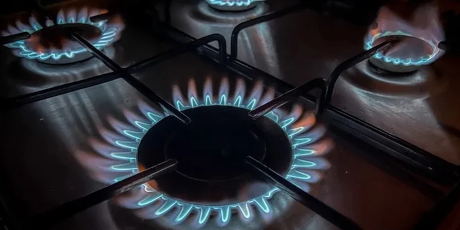Will Irish gas prices see a sharp increase this winter? 18 Nov 2024

Analysis: Natural gas is an important fuel for Irish electricity generation and heating, but the price we pay is decided by international events - Dr. Paul Deane, Senior Research Fellow, Energy Policy and Modelling, MaREI Centre, Environmental Research Institute, UCC.
War, weather and international politics impact how much we pay for energy in Ireland. While happening far from here, an escalation in the current conflict with Israel and Iran would impact the prices we pay to heat our homes and power our appliances this winter.
In Ireland, we use a lot of energy and produce very little of it. We are one of the most fossil fuel-dependent economies in Europe, meeting over 80% of all our energy needs. Oil refined into diesel and petrol is prolific across our economy, fuelling most of our cars, trucks, and buses, and is the most common fuel across the country for heating homes.
Natural gas is an important fuel in electricity generation and heating but, because most of these fuels are imported and purchased on international markets, we are price takers rather than price makers. The international price of crude oil is an important determinant of what we pay to fuel our cars, while international gas prices impact how much we pay for electricity.
The International Energy Agency has highlighted that energy security is a major concern given Ireland's reliance on energy imports,while transitioning to cleaner indigenous renewables. Energy security means having uninterrupted energy available at an affordable price. That, in turn, means ensuring reliable sources of supply and maintaining infrastructure that is resilient against physical and cyber threats.
The 2022 global energy crisis provided a difficult reminder of how much we depend on affordable supplies of energy. Russia's invasion of Ukraine led to a huge increase in wholesale energy prices, prompting the Irish Government to spend €1.2 billion to support the population by keeping energy more affordable. During the crisis, gas and oil still physically flowed into Ireland, but at a much higher cost.
In the past, concerns about physical interruption of energy into Ireland motivated strategic decisions on energy security. Under Ireland’s membership of the EU and the International Energy Agency, Ireland is obliged to hold strategic oil stocks to protect against a possible supply interruption. Today, we hold about €1.5 billion worth of oil in strategic reserves in locations across Ireland, which is about 80 days’ worth of use.
But we don’t do the same for natural gas, which leaves us exposed to any physical interruption. While a physical interruption in gas flow is unlikely, a prolonged interruption would be catastrophic for our society. Within the current conflict, an escalation of violence in the Middle East will result in price impacts rather than physical interruptions for us in Ireland.
In particular, there are a small number of key maritime arteries that are vital to the well-being of global oil and gas markets. One of these is the Strait of Hormuz located on the coast of Iran. Even though Ireland is not connected physically to the region, we are connected via markets and prices. If the supply of global oil or natural gas reduces, then the prices we pay increase.
From CNN Business, why the Strait of Hormuz is vital to the supply of the world's oil
The complete closure of the Strait of Hormuz, would block off around 20% of the global oil supply. It would also limit the possibility of other oil suppliers in the region to increase output from spare capacity. Some 20% of global shipped natural gas trade also flows through the Strait so any action that blocks this would be highly damaging for natural gas markets.
It is not possible to say what the impact on prices would be as it would depend on the timing and duration of the events. However, any such event would drive prices up and likely have a larger impact on petrol and diesel prices than natural gas in the short to medium term.
The remedy to such oil and gas insecurity is simple to see but hard to do. Ireland can move away from oil and gas and replace them with indigenous fuel sources like wind, solar and bioenergy to meet our energy needs, but this will take time (likely two to three decades).
Wind energy and solar energy are increasingly cost-effective and are set to remain so, with greatly reduced exposure to the vagaries of commodity markets and lasting benefits for health, employment, and well-being. But energy history tells us that crises occur when we don’t expect them, and volatility is an embedded part of energy markets.
To date, Ireland has been fortunate and has avoided close calls on energy security. Close calls can reveal weaknesses and make systems more resilient if policymakers draw the right lessons from an avoided disaster. But they can also breed complacency if it is concluded that there is no need to worry and assume our luck will continue to hold into the future.
To date, Ireland has been fortunate and has avoided close calls on energy security
When the war in Ukraine and the gas crisis in Europe faded from the headlines, the political urgency in Ireland on energy security and in particular strategy gas storage also passed. While the headlines may have gone, the risks have not and are now replicated in the conflict in the Middle East.
As we move away from fossil fuels in Ireland, we must accelerate the deployment of our own natural renewable resources and formulate a long-term plan for strategic, clean, secure energy storage. In the interim, we must act on the need for flexible gas storage, as relying on our luck to hold may prove a hollow strategy.